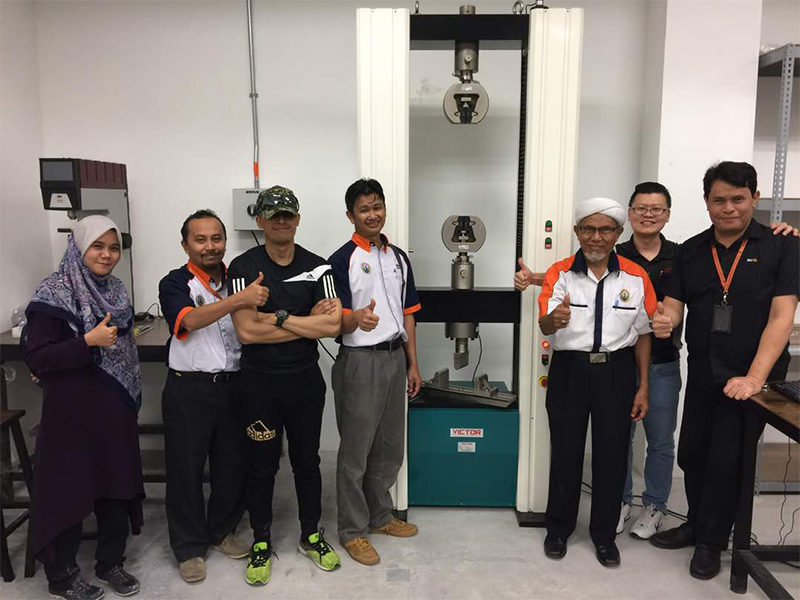The Malaysia Institute of Aviation Technology (MIAT) has chosen Victor Manufacturing’s 300kN Universal Testing Machine (UTM) to enhance its aerospace engineering curriculum. This high-capacity UTM allows students and researchers to conduct mechanical property testing on aerospace components, providing hands-on experience in material strength analysis. With its user-friendly software and intuitive interface, the VICTOR UTM simplifies testing procedures, making it an invaluable tool for aviation students. This investment reinforces MIAT’s dedication to producing industry-ready graduates with practical skills in material testing and structural integrity analysis.

